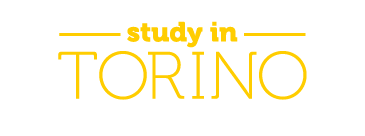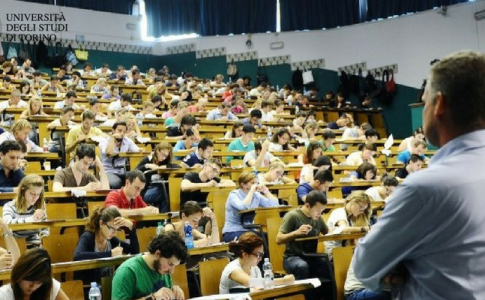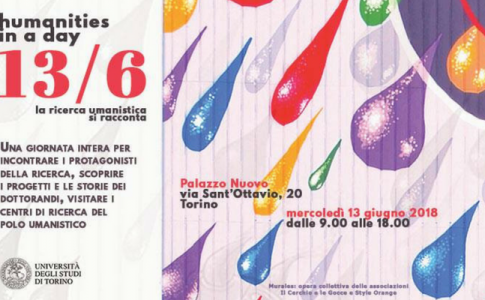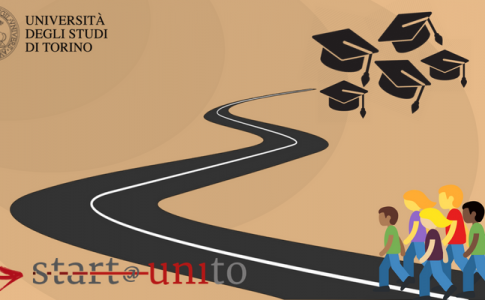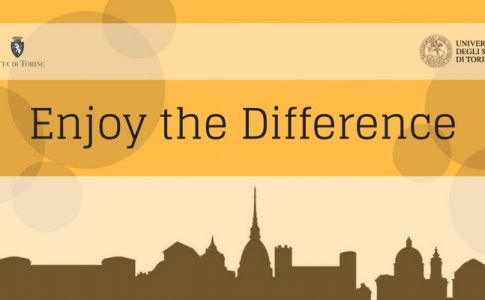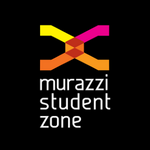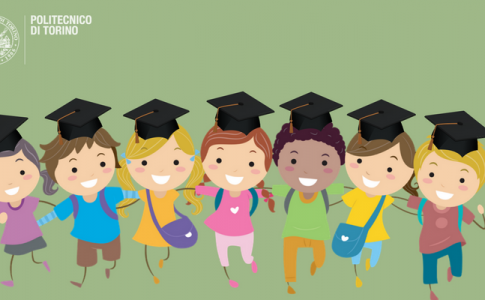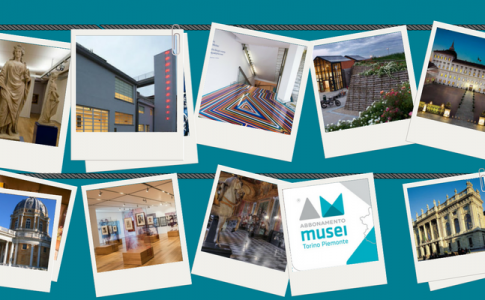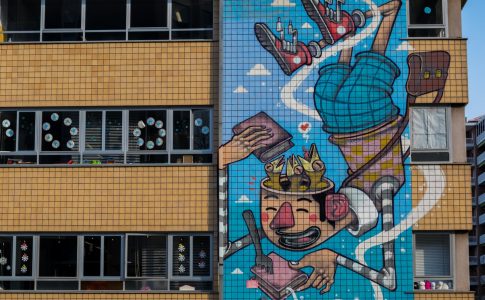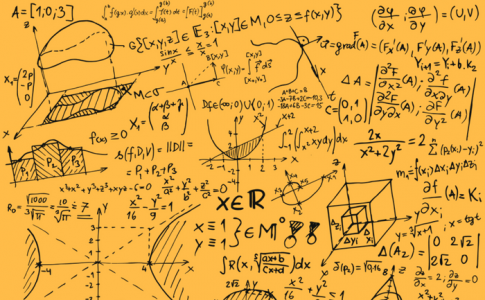The initiative “Girls and Boys, a day as university students” is back
Also this year, the initiative “Girls and Boys, a day as university students” sponsored by the Municipality of Turin and the Universities of Turin will take place at the Polytech (Politecnico). Children will be involved in some activities inside the University in order to discover the world of the scientific and technological research. The project is sponsored by the Department of Education of the Municipality of Turin through the Turinese Institution for a Responsible Education (ITER).
From 7th to 9th May, some fourth-and fifth-grades classes of the primary school of Turin will be welcomed at the Polytech with a series of activities the purpose of which is to show to the children the research of the Polytech. Today, 8th May, at 9 a.m. children will be welcomed by the Dean Guido Saracco.
Then, they will get into the earth of the activity:
Vision and color
The laboratory proposes the culture of the vision as training stage of the children and of their personality; the activity allows children to experience vision and colour, measure and proportion with simple supports created ad hoc
Origami and shapes
The activity guides the children through the identification of simple shapes hidden in manufactured ones through a process of recognition and abstraction of significant elements. Their paper modelling allows to understand the theoretical geometrical fundamentals and to learn them in a simple and practical way
Rover DIANA
Children will have the chance to see a rover model in motion. In the coming years, the model will be brought to the Moon by the ITALIA team, a consortium of Italian companies and universities participating in the international competition Google Lunar X-Prize. The purpose of the vehicle is to cover at least 500m and to send to the Earth high-resolution images of an Apollo moon-landing site or of the ones of previous moon missions.
The suspended ball
Children will have the chance to make a bizarre experiment. Everyone knows that taking a little ball made with an iron sheet and letting it go, it will fall to the ground.
We also know that if we take a magnet, there is a magnetic force that attracts the balls and so the little ball will remain attached to the magnet.
But what if the magnetic force of the magnet is the same as the force that makes the ball fall?
It may seem a spell, but in this case the ball remains suspended in the space. Making an object levitate means maintain it lifted up in a stable position without touching it, like some illusionists do in their spectacles.
Inverse pendulum
If you put a pen upright on the palm of your hand, will you be able to make it stand just like a juggler would do? It isn’t that easy, but we could succeed in doing it for some seconds.
Lego Mindstorm
Here’s something you are more familiar with: the Lego bricks. But what do the Lego do at the Polytech?
In the Lego Mindstorm series there are not only bricks for building objects but also a little computer which can be programmed for making little engine move or for reading some sensors (which are contained in the bricks).
For example, we can build a toy-car that in front of a barrier can move back and steer, trying to bypass it.
In short, we only need a bit of fantasy and we can really invent lots of funny projects. During the activity, children will see in motion little Lego robots previously built.
Chemistry turns into electricity
The idea is to show how the science can be applied and obtain technological solution that we use daily. Also an apparently tough and difficult subject as the chemistry can become funny and magical.
So, some activities that can be realises directly by children are proposed:
- realising a simple battery with everyday things ( copper and zinc in a lemon and measuring some electrical parameter or lighting a led)
- split the water in hydrogen and oxygen using a solution of water and bicarbonate, two drawing pencils … and a battery
finally there will be an only demonstrative activity: variation of the volume of gas contained in balloons due to the lowering of the temperature with the employ of liquid nitrogen, or production of carbon dioxide due to the decomposition of calcium carbonate with an acid.
Team H2politO
It will be explained the functioning of an hybrid vehicle, with an electrical a thermal engine, which allows to consume less fuel. The vehicle has been projected for participating in student competitions of low consumes, where all the vehicles are devised and realised by student s who want to conceive the mobility in the city in a “greener” way.
Team racing
The Team Racing (Squadra Corse) is a student team of the Polytech of Turin which was created in the winter 2010 from the idea of 10 students who loved engineering and motorsport.
The aim is to project a competition single-seat car every year in order to take part in the Formula SAE Championship for students from the best Universities worldwide. The Championship was created in 1981 from the idea of the Society of Automotive Engineers.
POLICUMBENT
Are you curious about knowing which is the fastest bike of the world and why isn’t it used at the Giro d’Italia? Do you want to discover what a velomobile is?
The student team Policumbent studies, design and realises human-powered vehicles in order to face the sporty and the everyday mobility challenges. A research which is something in between science, engineering and sport for exploring the limits of human skills. Some of the realised prototypes and new projects will be exposed and presented and, with a bit of luck, there will be the chance to do a little pedalling.
HISTORY GROUP
It will be presented the scale model of the roof of the Castle of Valentino and there will be a little introduction of the story of the architecture of the Royal House of Savoy
